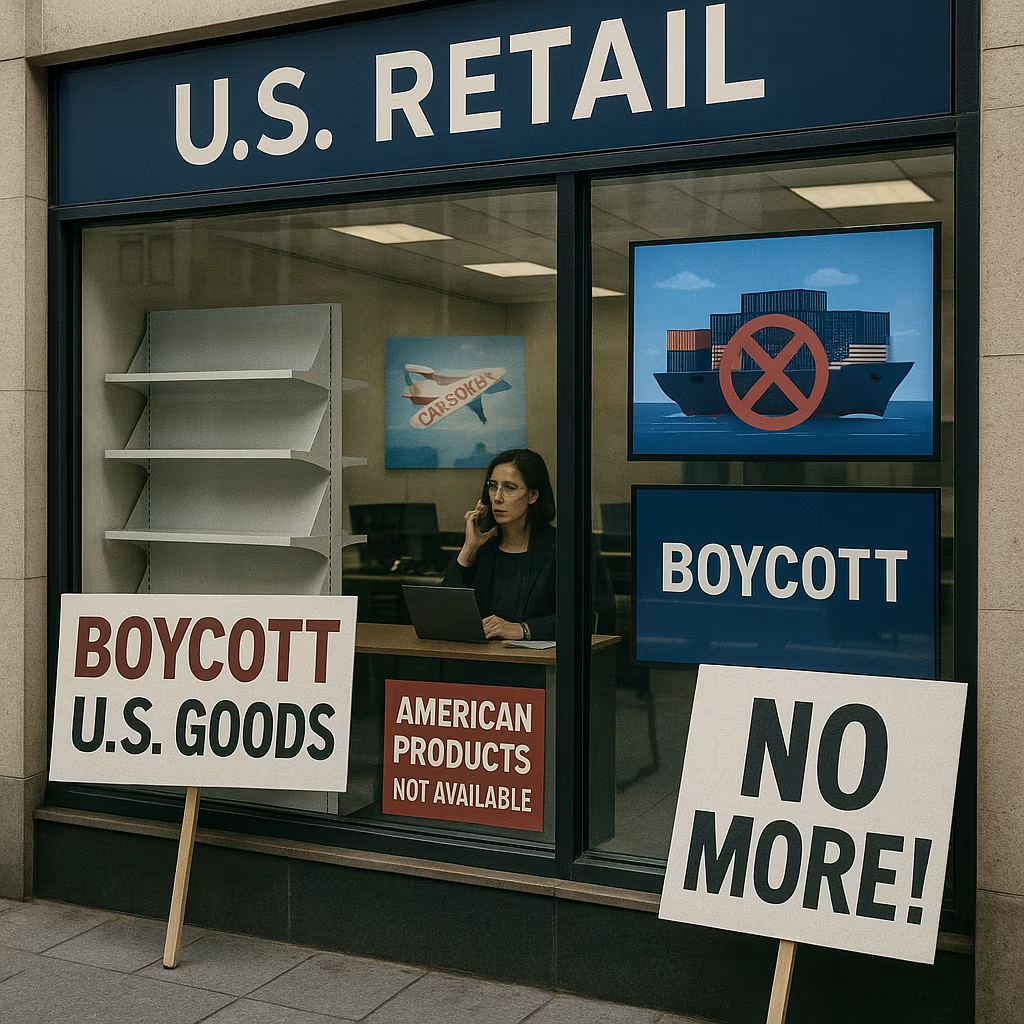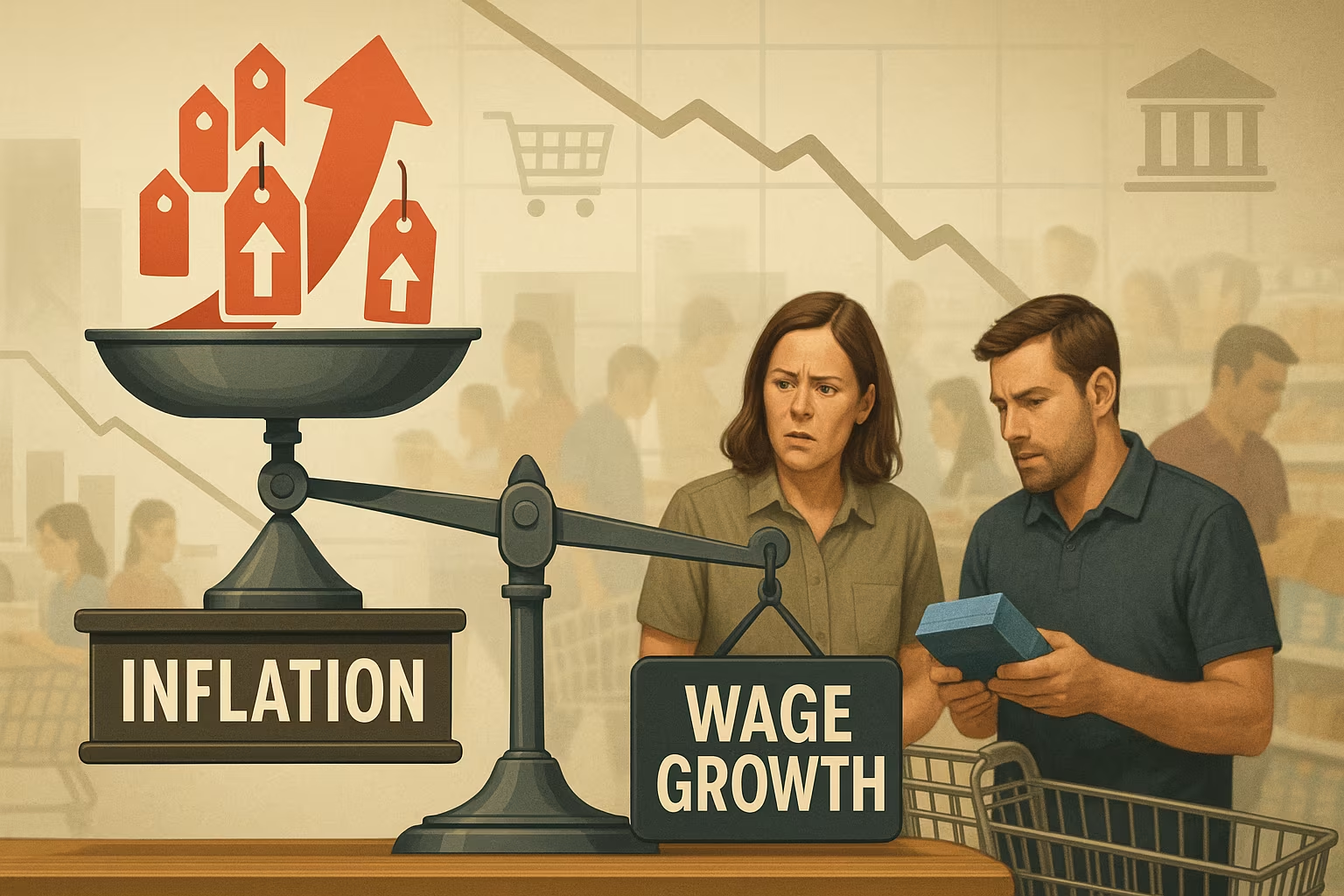An emerging wave of international boycotts against U.S. goods and services is raising alarm across the American retail, tourism, and trade sectors. Sparked by escalating geopolitical tensions and growing dissatisfaction with U.S. foreign policy in certain regions, the boycott movement is gaining momentum in markets that have traditionally been major consumers of American products and culture.
From organized social media campaigns in the Middle East to state-supported restrictions in parts of Asia and Africa, U.S. brands are facing calls for removal from shelves, canceled trips to American destinations, and reduced trade cooperation. While some see the movement as symbolic, early economic indicators suggest that the boycott is starting to impact business performance and could become a significant headwind in the second half of 2025.
A Growing Trend Driven by Political Backlash
The boycott is not the result of a single incident but rather a convergence of several diplomatic flashpoints. U.S. support for specific military operations abroad, trade sanctions against select countries, and perceived cultural or political interference have all contributed to rising anti-American sentiment in key international markets.
In several Middle Eastern nations, grassroots movements are urging citizens to stop buying American consumer goods, fast food, tech products, and apparel brands. Influencers and religious leaders have amplified the campaign, leading to real-time drops in sales of iconic U.S. companies. Major retailers in countries like Jordan, Qatar, and Turkey have reported double-digit sales declines in American brands over the past two months.
Simultaneously, Chinese state media has subtly encouraged consumers to support domestic brands over U.S. competitors. In African countries facing tightened U.S. sanctions or reduced aid, government officials have called for reduced dependency on American imports. Together, these signals suggest that the boycott is more than a temporary backlash — it may be a symptom of shifting global alignments.
Retailers Report Early Impact
American retailers, particularly those heavily reliant on international markets, are among the first to feel the effects. Fast food chains, beverage companies, and fashion labels that once dominated mall storefronts in foreign capitals are seeing reduced foot traffic and falling revenues. For some global retailers, international sales account for up to 40% of total income, meaning even a modest drop in demand can significantly impact quarterly performance.
E-commerce data supports these concerns. Online sales of U.S.-made goods have declined in several foreign markets, while competing European and Asian brands are gaining ground. Luxury retail, previously seen as resilient to political movements, is also experiencing friction. In parts of Southeast Asia and the Middle East, consumers are opting for non-U.S. alternatives even in premium categories like electronics, cosmetics, and high-end fashion.
Tourism Industry Faces Reversals
The U.S. tourism sector, already recovering slowly from the COVID-19 pandemic, may be the next victim. International tourist bookings to the United States from the Middle East and parts of Asia have started to decline, with travel agencies reporting higher cancellation rates and reduced interest in American destinations.
For an industry that employs millions and contributes over $1 trillion annually to the economy, a sustained boycott from major travel markets could be devastating. International tourism from China, the Gulf States, and Northern Africa has historically brought high-spending visitors to cities like New York, Los Angeles, Las Vegas, and Miami. A dip in arrivals from these regions threatens not only hotels and airlines but also retail stores, cultural institutions, and small businesses that rely on tourist traffic.
Trade Partnerships Under Pressure
The boycott movement also comes at a delicate time for U.S. trade relations. Several countries are reassessing their supply chain dependencies and bilateral trade agreements, often citing economic nationalism or retaliatory motives. The boycott, even if unofficial, may serve as a warning signal that trust and goodwill in U.S. trade partnerships are eroding.
This poses a challenge for U.S. exporters in sectors such as agriculture, automotive, and technology. If diplomatic tensions continue or intensify, countries may formalize restrictions or turn to rival nations for goods and services. Already, Brazil, India, and China are positioning themselves as alternative suppliers to regions once heavily reliant on American imports.
In the longer term, continued hostility toward U.S. goods could incentivize regional trading blocs to reduce their exposure to the U.S. market, further complicating America’s role in global trade dynamics.
The Role of Social Media and Digital Activism
One reason this boycott is spreading faster than past efforts is the role of social media and decentralized digital activism. Hashtags calling for bans on U.S. brands have trended globally, and short-form videos showing consumers returning or destroying American products have gone viral.
This digital environment allows movements to spread quickly and gain support across borders without centralized leadership. For multinational corporations, this makes it difficult to contain reputational damage or respond effectively with localized PR strategies.
Several U.S. brands have issued public statements reaffirming their neutrality or humanitarian commitments, but with mixed results. In many cases, silence or perceived insensitivity has further alienated international audiences.
U.S. Government and Corporate Response
The Biden administration has acknowledged the growing movement but has so far downplayed its economic impact. Officials have reiterated their commitment to diplomacy and trade engagement, while emphasizing the resilience of the U.S. economy.
Privately, however, there is concern. Several business coalitions have begun lobbying for more proactive diplomatic outreach to regions where tensions are rising. The Commerce Department has also reportedly initiated internal reviews to assess the risk exposure of critical export industries.
On the corporate side, multinational U.S. firms are evaluating supply chain diversification, brand positioning strategies, and market-specific messaging. Some are investing more heavily in local manufacturing or forming joint ventures with non-U.S. firms to dilute the perception of American dominance.
Risks of Escalation and Long-Term Impacts
If the boycott continues to gain traction, the consequences could extend far beyond consumer products. Financial services, education, energy, and media sectors could all be targeted in subsequent phases. U.S.-based online platforms may face usage restrictions or bans. American universities that depend on international tuition revenue may see application declines from boycotting regions.
There is also the risk of tit-for-tat measures. If U.S. companies begin losing competitive ground, political pressure may mount for retaliatory sanctions or trade restrictions, deepening the geopolitical divide and introducing more volatility into global markets.
Furthermore, the boycott may fuel broader anti-globalization sentiment. If American products become symbols of unwanted foreign influence, the broader ideals of free trade, open markets, and liberal economic cooperation could be at risk.
A Challenge Not to Be Underestimated
The emerging global boycott of U.S. goods represents more than a dip in quarterly sales — it reflects a broader shift in global perception, influence, and alignment. For U.S. businesses, this trend is a wake-up call to rethink international engagement, cultural sensitivity, and diplomatic context. For policymakers, it’s a signal that soft power and economic trust are fraying in key regions.
While it remains to be seen whether the boycott will sustain its momentum, early indicators suggest that its impact is already being felt across retail, tourism, and trade. Navigating this challenge will require a careful blend of diplomacy, corporate adaptability, and a renewed commitment to rebuilding international relationships in an increasingly fragmented world.





